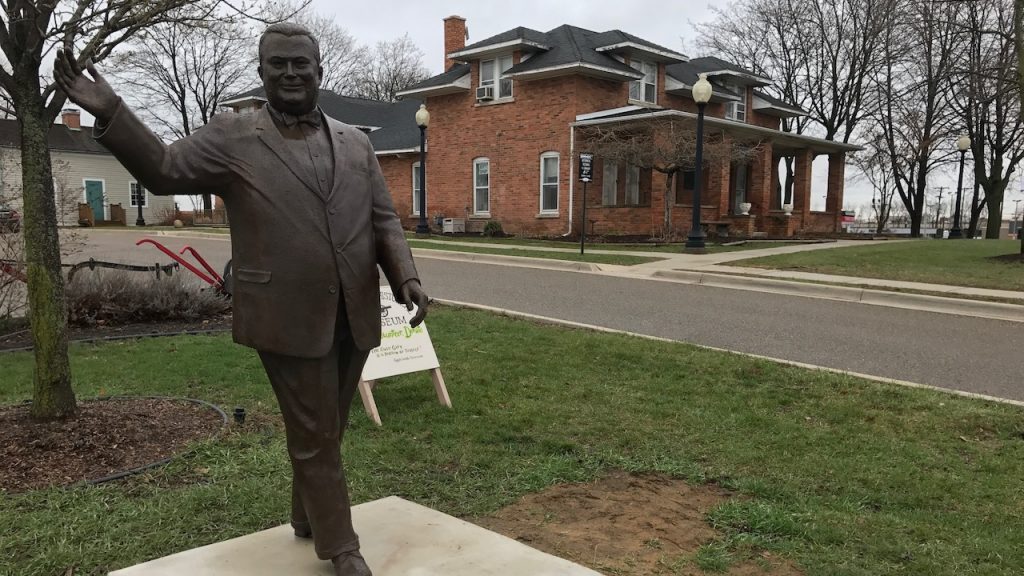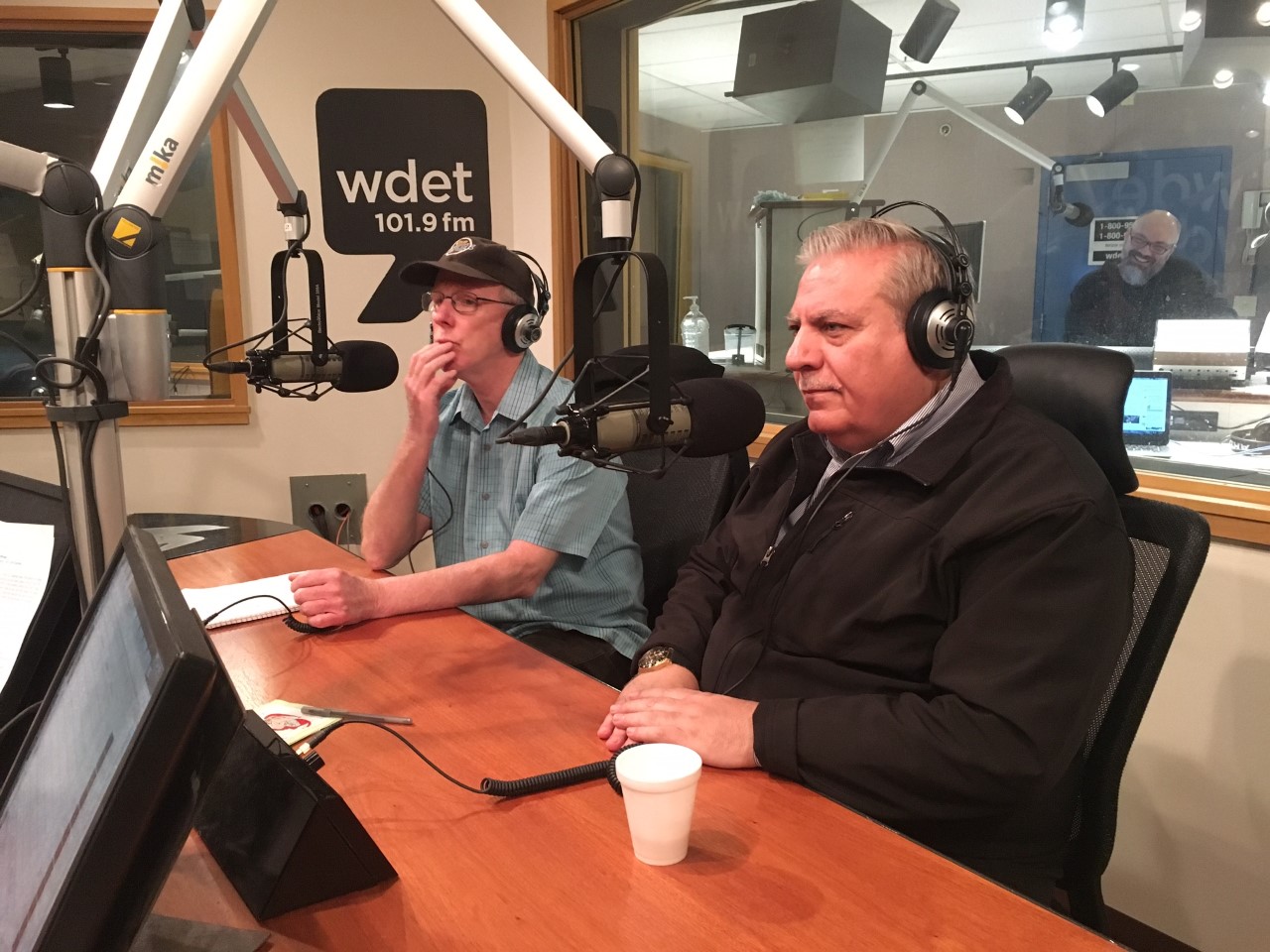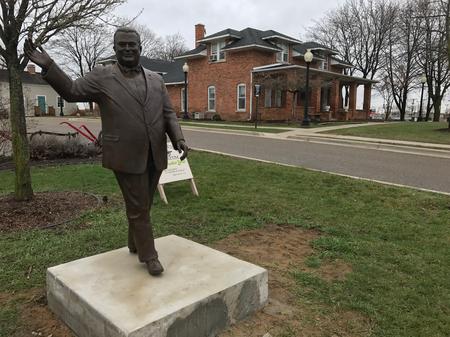Should Dearborn’s Orville Hubbard Statue Stand Despite Racist Legacy?
“…this guy was the personification of what happened all across Metro Detroit.”


A statue depicting the city of Dearborn’s longest-serving mayor resurfaced this week along with the decades-long controversy surrounding the legacy it represents.
In 1956, then-Dearborn Mayor Orville Hubbard gave this quote to an Alabama newspaper:
“Every time we hear of a Negro moving in… we respond quicker than you do to a fire.”
Hubbard was the city’s longest-serving mayor, in office from 1942 until 1978.
His segregationist views as mayor made Dearborn “a symbol of the deep-seated racism of the North” according to the New York Times.
A statue of the controversial former mayor was taken down from the grounds of Dearborn’s old City Hall in 2015 when the building was sold. But it’s back up this week outside of the Dearborn Historical Museum.
Why? Is it important to memorialize leaders who played significant roles in local history in this way, even if they’re so flawed as individuals and leaders? And what is Hubbard’s legacy in modern America and modern Dearborn?

Detroit Today Host Stephen Henderson speaks with journalist Bill McGraw, who recently wrote about the controversy surrounding the statue for the Detroit Free Press, as well as Arab American News Publisher Osama Siblani.
“A number of people — both inside and outside of Dearborn — who I’ve spoken with don’t have a problem with the statue being somewhere,” says McGraw, “but that it should have some sort of plaque that explains, at least in a sentence, that this guy was the personification of what happened all across Metro Detroit.”
“I believe that Orville Hubbard played a major role in the history of Dearborn,” says Siblani. “He’s a racist, no doubt about it. And that is part of his history too. And it should have been displayed.” Siblani also says he would prefer the statue not to be placed outside near the street. He says it would be more appropriate to display the statue inside the museum.
Detroit Today invited Dearborn Mayor John O’Reilly to join the conversation. His office said he was unable to participate due to scheduling conflicts, and that no other city officials or museum staff would be able to participate.
Click on the audio player above to hear the full conversation.
